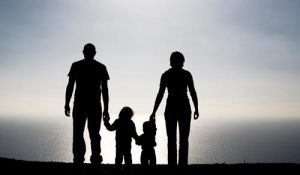Sushree Sahu
Well, the sanctity of this bond is rarely challenged in our culture and is repeatedly emphasised through ancient folklore, mythology and sometimes, through contemporary media. There’s no denying, after all, the sacrifice of the parent(s) for the child(ren). The most stark being the image of the mother, who through dreadful and threatening life situations, emerges victorious, vindicated in her motherhood and undying love for her child whom she lovingly carries in her arms close to her bust, creating one solid entity of two distinct individuals. This image of the uncompromising mother is so real, that it is almost sinful to question its authenticity, far less, consider the possibility of any deviations from the original conceptualisation.
And with all its authenticity, the child grows to see and believe in the image of the mother who created its existence. There’s an obvious gratitude that follows. The gratitude that is almost instinctive to the child, is time and again, fed into the child through the powerful forces of socialisation, to the extent that any lapses of felt gratitude is met with reprimand by others and deep sadness by the mother. Is it any surprise then that the child is ought to feel guilty for its lapses of gratitude, especially when it owes its life to the mother figure it upset? What does the child eventually learn? It learns that upsetting this life force is a moral crime that is not to be committed and you should give up your own life to sustain this life force? Sounds sort of contradictory to the image that we started out with. Who is to sacrifice for whom? The parent (mother) for the child, or is it the other way around? It’s a pretty much chicken and egg story, with no beginning or end.
The child is made to realise early on there is a way to pay for gratitude: be it by being an obedient perfect child, academically sound and an overall achiever. Because the parents have sacrificed their life and spend their hard earned income on raising a good child. So, a mediocre child is clearly not an expected outcome. The sacrifices are sacrosanct, and the good fortune bestowed on the child float as unfulfilled childhood desires of the parents. It almost begs the question; whose mediocrity are you truly upset with- your child’s or your own childhood’s?

What is unfortunate is that many parents try to live their unfulfilled lived through their children. And more unfortunate than that it their lack of realisation of the same. Parents try hard to not be like their own parents, and in the process forget too soon what it was like to be children themselves. They forget that children just like to be themselves: innocent, curious, adventurous and playful. Generations have changed, lifestyles have changed, but the basic psyche of the child remains unchanged if left un’adult’erated. The desire to explore their environment with limited resources is truly the essence of childhood. Tampering the innocence with adult like wisdom and caution, unfulfilled childhood aspirations, expectations of returned favour preclude the child from really becoming what it is capable of. Adolescent crisis of identity and confusion partly stem from this conflict between the parental expectations and the growing inner authenticity that the adolescent first becomes acquainted with. The contradictory forces creating a conducive environment for an existential crisis.
While it is truly audacious to blame the parents for all the problems in the child’s life, it is equally important to realise that their desires of their children are only borrowed desires from their own parents which are unknowingly transmitted along the family line. Parents are victims of their own parents and further victimise their children creating a rather lethal vicious cycle. While it is tough to ascertain whether the egg came first or the chicken, it might be worthwhile to stop, reflect and see what it would be like to let the chicken fly (as absurd as it may sound) rather than let it get back into the cycle of producing another egg that will hatch into another chicken.
The author is counselling psychologist and psychotherapist, ManasGanga Clinic, Noida